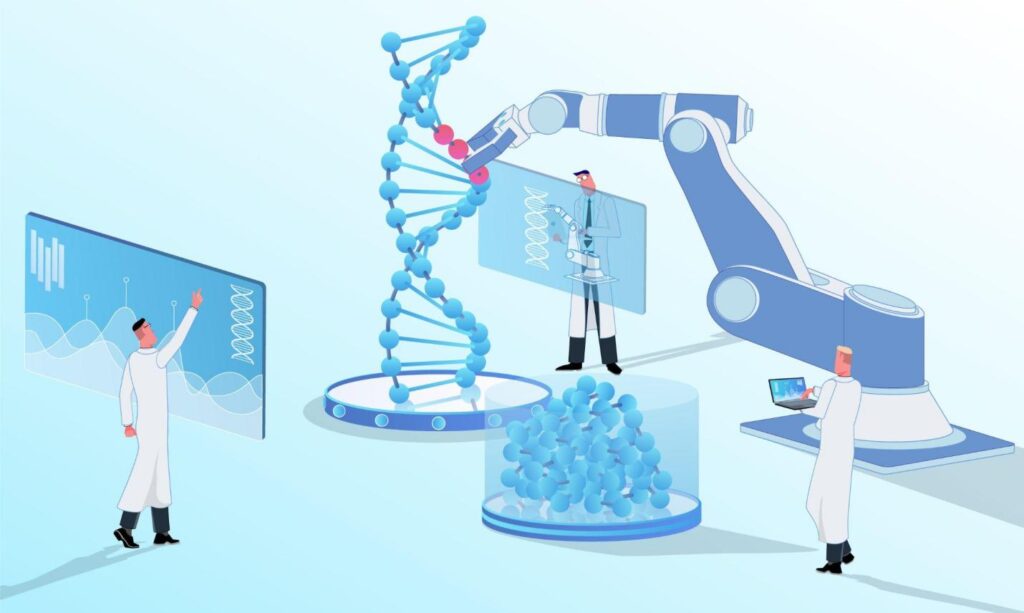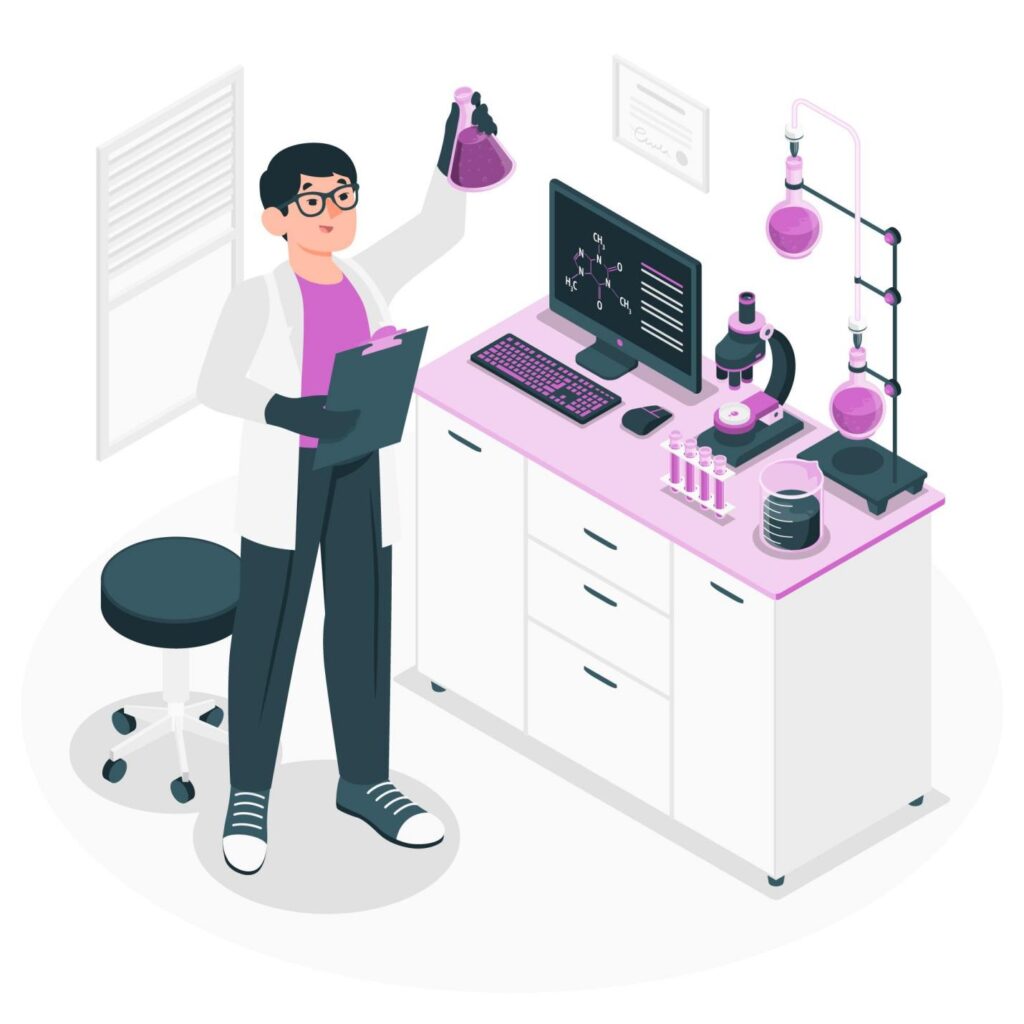
Today’s health depends on accuracy, speed, and the right choices. This ecosystem is supported by laboratories which are core components of diagnostic processes. From screening tests such as blood tests to molecular biology tests like genetic testing, laboratories play an important role in informing the management of health. That said, as patient turnover rates continue to rise and testing requirements become more complex, laboratories must think outside the box to preserve throughput and precision. This is the premise on which Laboratory Management Systems (LMS) come in to help transform diagnostics coupled with enhanced healthcare solutions.
What is a Laboratory Management System?
A laboratory management system is a concept that refers to software that is used to address laboratory management issues. It effectively comprises specimen tracking, data documenting, reporting, labeling, storing, inventory checking, and experiment quality regulation. Laboratory Management Systems solutions also remove the many potential errors associated with manual processes, speed up turnaround times, and are fully compliant with the relevant regulations. Such innovative Laboratory Management Systems solutions have been around for several years and companies like DrPro have been offering sophisticated solutions designed to the modern complex laboratories requirements.
The Challenges of Traditional Laboratory Management
Historically, laboratories relied on manual processes, which, while effective in their time, posed significant limitations:
Human Errors:
Manual data entry is a source of many mistakes and this in turn affects the result of the test or the outcome of the patient.
Inefficiency:
Many samples do not require that much attention from experts, and increasing their number without automation hinders processes, thereby affecting diagnosis.
Data Silos:
This makes it very hard to pull together information or to analyze information gathered through conventional approaches.
Regulatory Compliance:
Maintaining compliance checks with high standards of healthcare automatically is a bottleneck practice.
For instance, a clinical lab that processes more than 1000 samples daily will find it very difficult to determine the status of each sample without the help of an automated system. That is, such inefficiencies may result in lost samples, delayed results, and unsatisfied patients.
How Laboratory Management Systems Revolutionizes Laboratory Operations

1. Streamlined Workflow
A Laboratory Management System will take over simple activities such as sample registration, generation of barcode numbers, and data entry. This process reorganization minimizes inefficient processes and guarantees that each process is formatted. For example, where there is registration of patient samples, the system assigns the identification number automatically leading to reduced possibilities of label mix-up.
2. Enhanced Accuracy
When information processing is automated, the chances of errors occurring are greatly reduced. Laboratory Management Systems software works with other diagnostic devices where test results are fed directly to the LMS without having to be keyed in. This integration ensures that the reports are accurate in the content and the formats making a lot of sense to the patients and their healthcare providers.
3. Faster Turnaround Times
There are moments when time plays a decisive role among all the factors. A good Laboratory Management System works in the sense that it stratifies samples according to a sense of urgency, leaving the technicians to attend to important tests. For instance, in the COVID-19 breakout, labs, that had implemented LMS solutions, were able to produce thousands of RT-PCR tests and reports daily.
4. Comprehensive Data Management
LMS solutions have the feature of date centralization and therefore can be used to store patient records charts, test results, QC records, etc. One advantage of this accessibility is the applicability for research-based laboratories or laboratories that are partnering with a hospital.
5. Regulatory Compliance
The existing regulations in the healthcare context are very much vague on protocol compliance terms elaborating on data security, sampling, and quality considerations. Some of the capabilities required in an LMS that is found in DrPro are the ability to record the history of all activities about the courses delivered, the ability to have system-level checks and reminders to ensure that only quality content is posted, and secure storage of data.
The Role of Laboratory Management Systems in Personalized Medicine
Pharmacogenomics is the customized treatments through accurate diagnosis of specific individuals’ conditions based on certain data. In this shift, LMS platforms come out handy in providing the accurate data that learners need. For example, the genetic profiling of a cancer patient requires an LMS that maps the sample’s journey; supports sequencing equipment; and provides fast and effective data delivery to the oncologist.
Addressing the Concerns of LMS Adoption
Cost Considerations
LMS platforms are however expensive to implement initially, but the gains achieved outdo the costs after some time. These in turn lead to higher profitability for the labs through improved efficiency, minimized errors, and compliance.
Training and Adaptation
Implementing a new Laboratory Management System for any organization may not be so easy for the staff that is used to working with many papers and performing many tasks manually. Nevertheless, most LMS providers, including DrPro, make available detailed training and support services to help organizations acoustic the changeover easily.
Data Security
Since patients’ information is incredibly personal, security is paramount in any solution. Today’s LMS solutions use encryption, rights management, and updates to protect data.
The Future of Laboratory Management Systems
It should be noted that advancements in Laboratory Management Systems reflect general tendencies in healthcare technologies including artificial intelligence, cloud technologies, and data interoperability.
AI and Predictive Analytics
The next generation of Laboratory Management Systems solutions will incorporate artificial intelligence for trend analysis in work-flow patterns, and potential deviations from the expected normative behaviors in tests. For instance, an LMS could be used to identify potential outbreaks because the system would identify elevated testing activity levels for specific pathogens.
Cloud-Based Solutions
Using the cloud, LMS platform data can be shared with other geographical locations in real time. Diagnostic centers can also adopt and build a network with a unified system in this manner to centralize data collection as well as increase coordination advantages.
Interoperability with Other Systems
With further incorporation of healthcare systems, an LMS has to easily interface with electronic health record solutions, billing and reimbursement systems, and telemedicine solutions. For example, all the software developed by DrPro for Trends in Laboratory Management Systems in 2025 must be compatible with other systems by providing integration services.
The Human Element in Laboratory Management Systems Adoption
On the one hand, there is a clear focus on the efficient use of technologies for administrative tasks, so on the other hand, the human factor is still crucial. An LMS praises lab technicians in the manner that they can minimize several administrative tasks and thus be able to provide more time for analytical as well as interpretative work. It also makes patient care better: All jobs are more satisfying when there is less confusion about who is to do what.
Conclusion
Laboratory Management Systems are revolutionizing diagnostic systems by solving the problems of the traditional methodology. Therefore, through organization, efficiency, and productivity Laboratory Management Systems platforms assist labs in addressing the challenges of modern healthcare facilities.
Such providers as DrPro are at the forefront of such a revolution because they are offering solutions that are customized for the requirements of laboratories. I can only imagine how big improvements the added elements such as AI and cloud computing will bring to diagnostics as the technology advances.
Any way you look at it the advantages of Laboratory Management Systems are apparent for both the healthcare staff and patients—a more rapid, precise, and efficient laboratory does not only signify a technical victory, but it is the real definition of improving the quality of healthcare services.